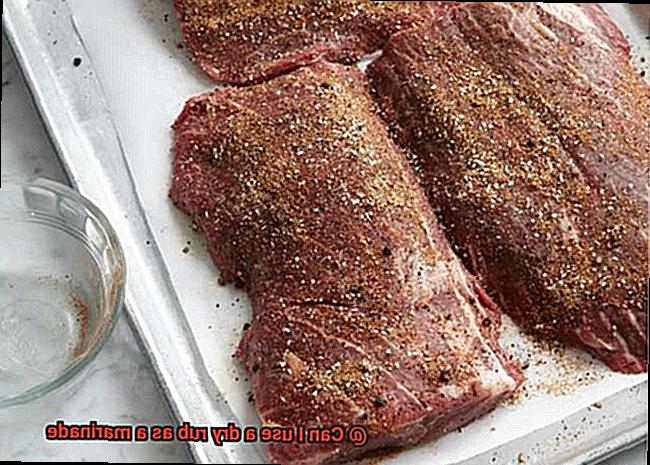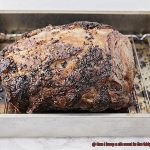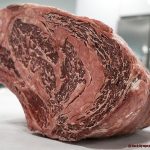As a grill master, you know the importance of infusing your meats with flavor. And two popular methods to achieve this are dry rubs and marinades. Dry rubs are made up of a blend of herbs, spices, and seasonings that are applied to the surface of your meat. Marinades, on the other hand, involve soaking your meat in a liquid mixture for hours or even overnight. But what if you’re short on time? Can you use a dry rub as a marinade instead?
The answer is yes – but there’s more to it than that. While dry rubs can add flavor to the surface of your meat, they don’t penetrate it like marinades do. So if you want deeper flavor throughout your meat, stick with marinades. However, if you need quick flavor without sacrificing taste, then dry rubs are an excellent option.
In this post, we’ll explore everything you need to know about using a dry rub as a marinade. We’ll cover the key differences between these two techniques and show you how to apply your dry rub correctly for maximum effect. Plus, we’ll share some of our favorite dry rub recipes that work great as marinades too.
So grab your tongs and let’s get started. Whether you’re new to grilling or a seasoned pro, this guide will help take your cooking game to the next level by mastering the art of combining dry rubs and marinades for mouth-watering results every time.
Contents
What is a Dry Rub?
A dry rub is a tantalizing blend of spices and herbs that can be used on anything from meat to vegetables, adding depth and complexity to your dishes. But what exactly is a dry rub?
Simply put, a dry rub is a mixture of herbs, spices, and sometimes sugar that is rubbed onto the surface of meat before cooking. Each ingredient in a dry rub brings its own unique flavor to the mix, creating a complex seasoning that can take your taste buds on a journey.
Some common ingredients in a dry rub include paprika, garlic powder, onion powder, cumin, chili powder, and brown sugar. But the possibilities are endless – you can customize your dry rub recipe to suit your preferences and desired flavor profile.
When using a dry rub, it’s important to coat the meat evenly with the seasoning mixture. This can be done by patting the rub onto the meat or by using a rub shaker. Once the meat is coated in the dry rub, it should be left to sit for at least 30 minutes to allow the flavors to penetrate.
Dry rubs are perfect for those times when you don’t have hours to spend marinating your meat. The spices in a dry rub can infuse the surface of the meat with flavor in as little as 30 minutes, making it an easy and quick way to add flavor.
However, it’s important to note that a dry rub won’t tenderize meat like a marinade will. If you’re looking for tender meat, it’s best to use a marinade instead of relying solely on a dry rub.
Another consideration when using a dry rub is the amount of salt in the mixture. Many dry rubs contain a high amount of salt, which can draw moisture out of the meat and make it tough. If you’re using a dry rub as a substitute for a marinade, be mindful of the amount of salt you’re using and adjust accordingly.
What is a Marinade?
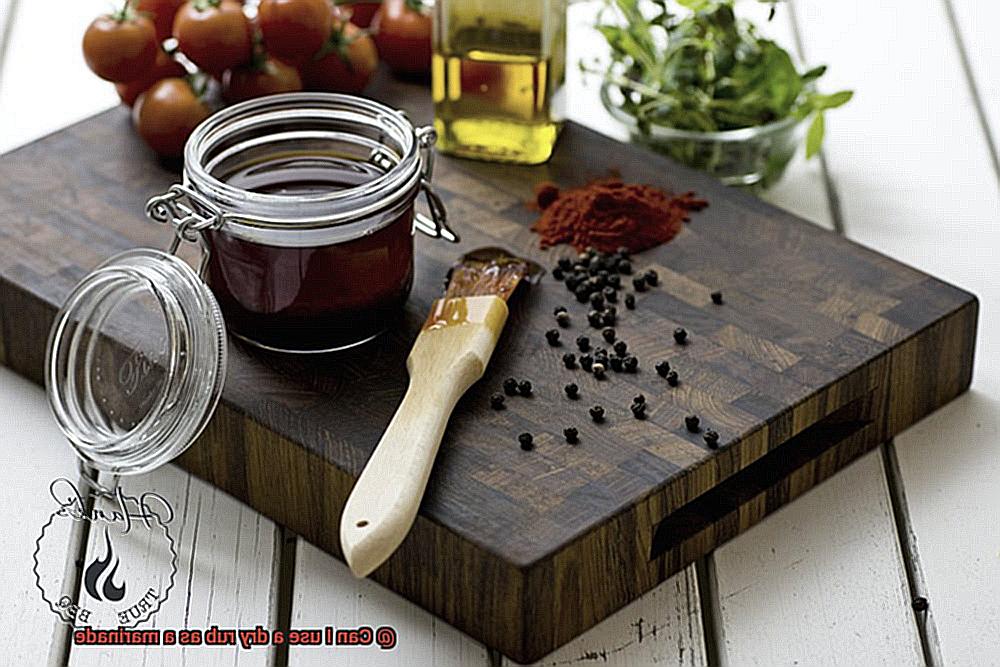
Look no further than the wonders of marinades. A marinade is a mixture of ingredients that can transform any ordinary dish into a flavor-packed masterpiece. As an expert on the topic, let me guide you through the world of marinades.
Marinades are primarily used to flavor and tenderize meats, poultry, fish, and vegetables. By using a combination of ingredients such as acids like vinegar or citrus juice, oils, herbs, spices, and sweeteners, you can create a personalized marinade that best suits your taste buds. The acid in the marinade helps break down tough muscle fibers, making the meat more tender while the oil keeps it moist and prevents it from drying out during cooking.
There are two types of marinades: wet and dry. Wet marinades are liquid-based and are used to completely submerge the food being marinated. Dry rubs, on the other hand, are a mixture of spices and seasonings that are rubbed onto the surface of the meat. Both methods add flavor and help tenderize the meat.
However, it’s important to note that while marinades can make your food tender and flavorful, they don’t necessarily penetrate deeply into the meat. Over-marinating can lead to an undesirable texture. So use them properly and don’t rely solely on them for great results.
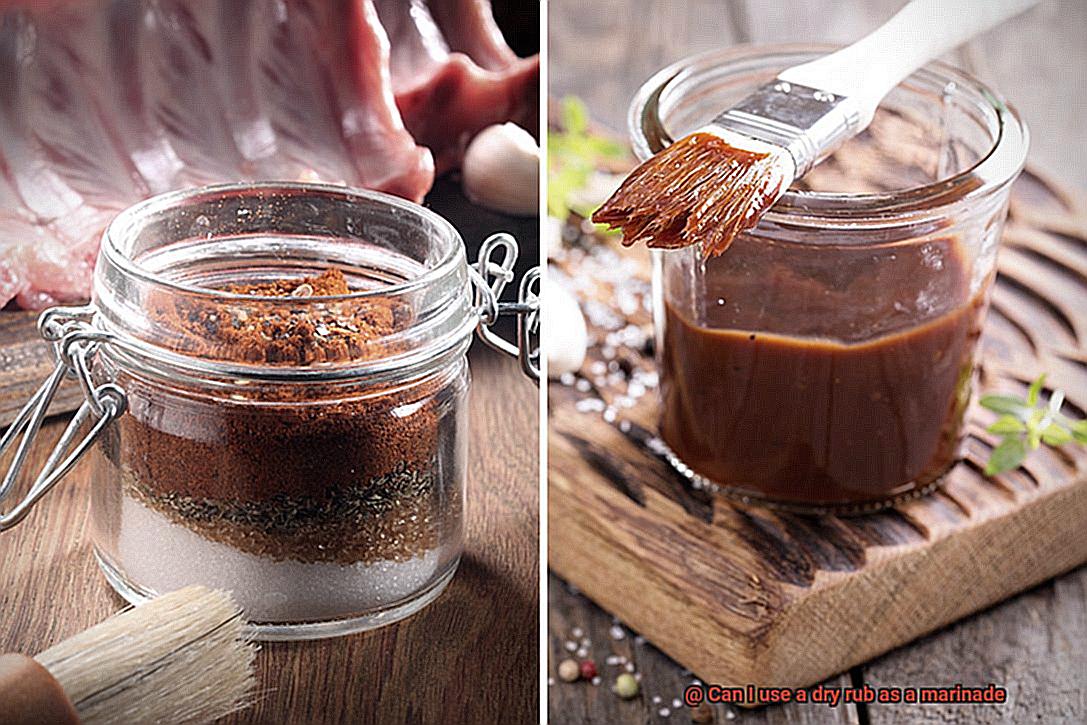
The Difference Between Dry Rubs and Marinades
Then let’s explore the difference between dry rubs and marinades, two powerful techniques that will elevate your grilled dishes to new heights.
First up, dry rubs. A dry rub is a magical mixture of herbs, spices, and seasonings that are rubbed onto the surface of the meat before cooking. This creates a delicious crust on the outside of the meat while enhancing its natural flavors. Whether you’re smoking or roasting your meat, a dry rub is the perfect way to infuse bold flavors into your dish.
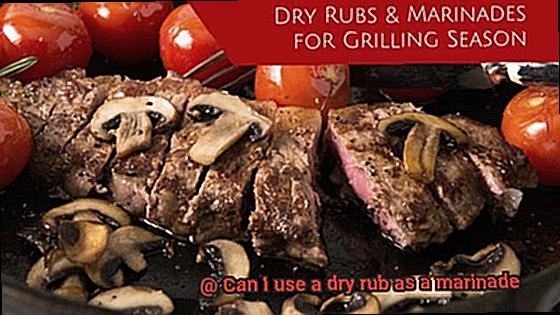
Now, let’s dive into marinades. A marinade is a liquid mixture made with oil, vinegar, citrus juice, wine, or other acidic ingredients that tenderize and flavor the meat. The marinade is soaked into the meat for several hours or even overnight. The acid in the marinade breaks down the connective tissues in the meat, making it more tender and juicy while infusing it with intense flavor.
So what’s the big difference between these two flavor-boosting techniques? Dry rubs add flavor to the surface of the meat while marinades penetrate deep into the meat, tenderizing it from within. While both techniques enhance the taste of your grilled meats, they do so in different ways. Using a dry rub as a marinade would not produce the same results as they have different functions.
Here are some tips to help you use these techniques effectively:
- Use a dry rub for slow-cooking methods like smoking or roasting.
- Use a marinade for quick-cooking methods like grilling or sautéing.
- Don’t overdo it. Too much seasoning can overpower your dish.
- Let your meat rest after applying a dry rub or marinade so that the flavors can fully develop.
Advantages of Using a Dry Rub as a Substitute for a Marinade
Look no further than dry rubs. As an expert in the field, I’m here to share with you the many advantages of using a dry rub as a substitute for a marinade.
Firstly, dry rubs are the perfect choice for busy cooks. You can season your meat just before cooking, with no marinating time required. This means less time spent in the kitchen and more time enjoying your delicious meal. Plus, dry rubs are incredibly easy to use. Simply apply the rub to your meat and get it on the grill right away.
Secondly, dry rubs are versatile and can be used on a variety of meats. Whether you’re grilling chicken, pork, or beef, a well-seasoned dry rub can enhance the flavors and create a mouth-watering crust on the outside. This makes them an ideal choice for those backyard barbecues where you may be cooking multiple types of meat.
Another advantage of using a dry rub is that it can help create a crispy exterior on your meat. When cooked over high heat, the spices and herbs in the rub form a crust that becomes crispy. This provides an irresistible texture that contrasts with the tender and juicy interior of the meat.
But that’s not all. Using a dry rub can also be a healthier option than marinating. Many marinades contain high amounts of sugar and salt, which can add unwanted calories and sodium to your meal. In contrast, dry rubs typically rely on spices and herbs to add flavor, making them a healthier choice.
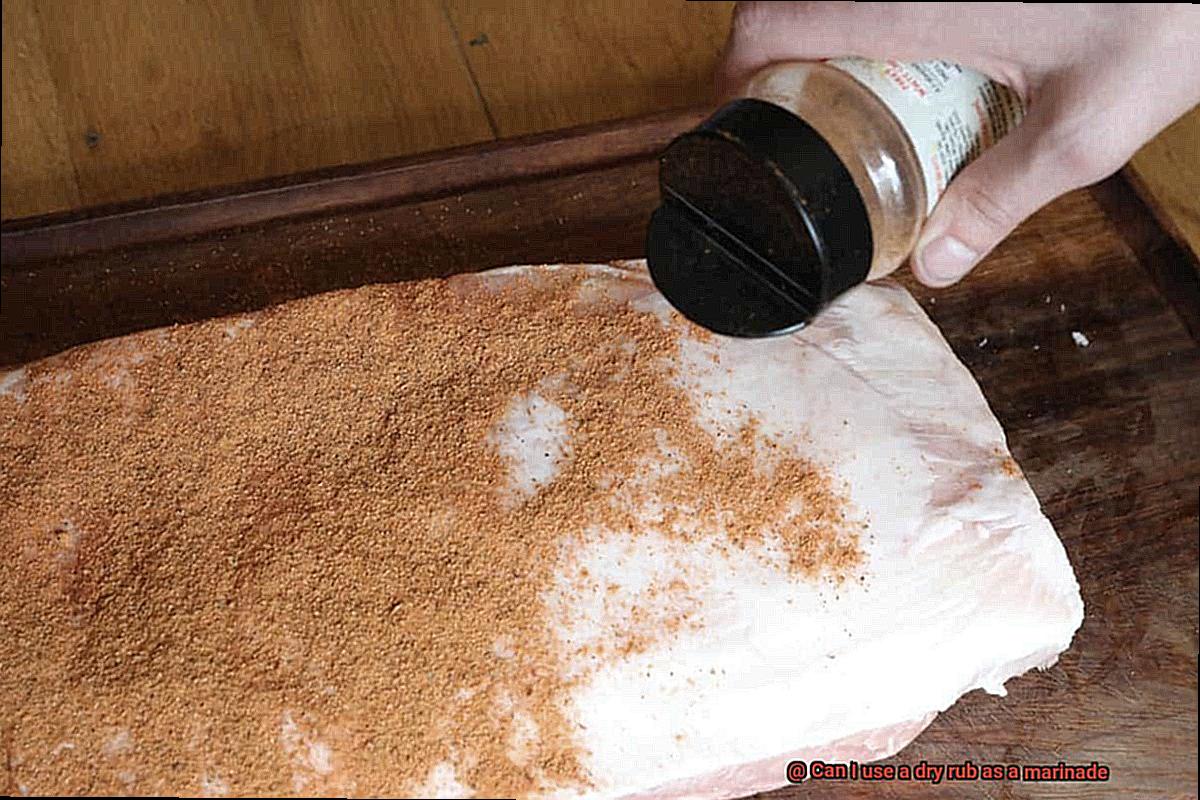
Disadvantages of Using a Dry Rub as a Substitute for a Marinade
While they are convenient and tasty, it’s important to understand the disadvantages of using them as a substitute for marinades.
Firstly, dry rubs cannot penetrate the meat as deeply as marinades. The acidic ingredients in marinades such as vinegar or lemon juice help to tenderize the meat and allow the flavors to soak in. In contrast, dry rubs consist mostly of dry herbs and spices that can only flavor the surface of the meat.
Secondly, using a dry rub can cause your meat to become dry if not applied correctly. Unlike marinades that keep meat moist while cooking, dry rubs can absorb moisture from the meat, leaving it dry and unappetizing. Applying too much of the rub or leaving it on for too long can also result in a crust on the meat that may be too intense or overpowering in flavor.
Lastly, while dry rubs can enhance the taste of your grilled meats, they cannot replace marinades when it comes to deep flavor penetration and tenderized meat. Marinades create a subtle and well-rounded taste throughout the meat that dry rubs simply cannot achieve.
Tips for Using a Dry Rub as a Substitute for a Marinade
Grilling is a great way to enjoy delicious, flavorful meat, but marinating can be time-consuming and not always an option. Fortunately, dry rubs are a quick and easy solution that can be used as an alternative to marinades. To make the most of your dry rub, here are some tips on how to use it effectively.
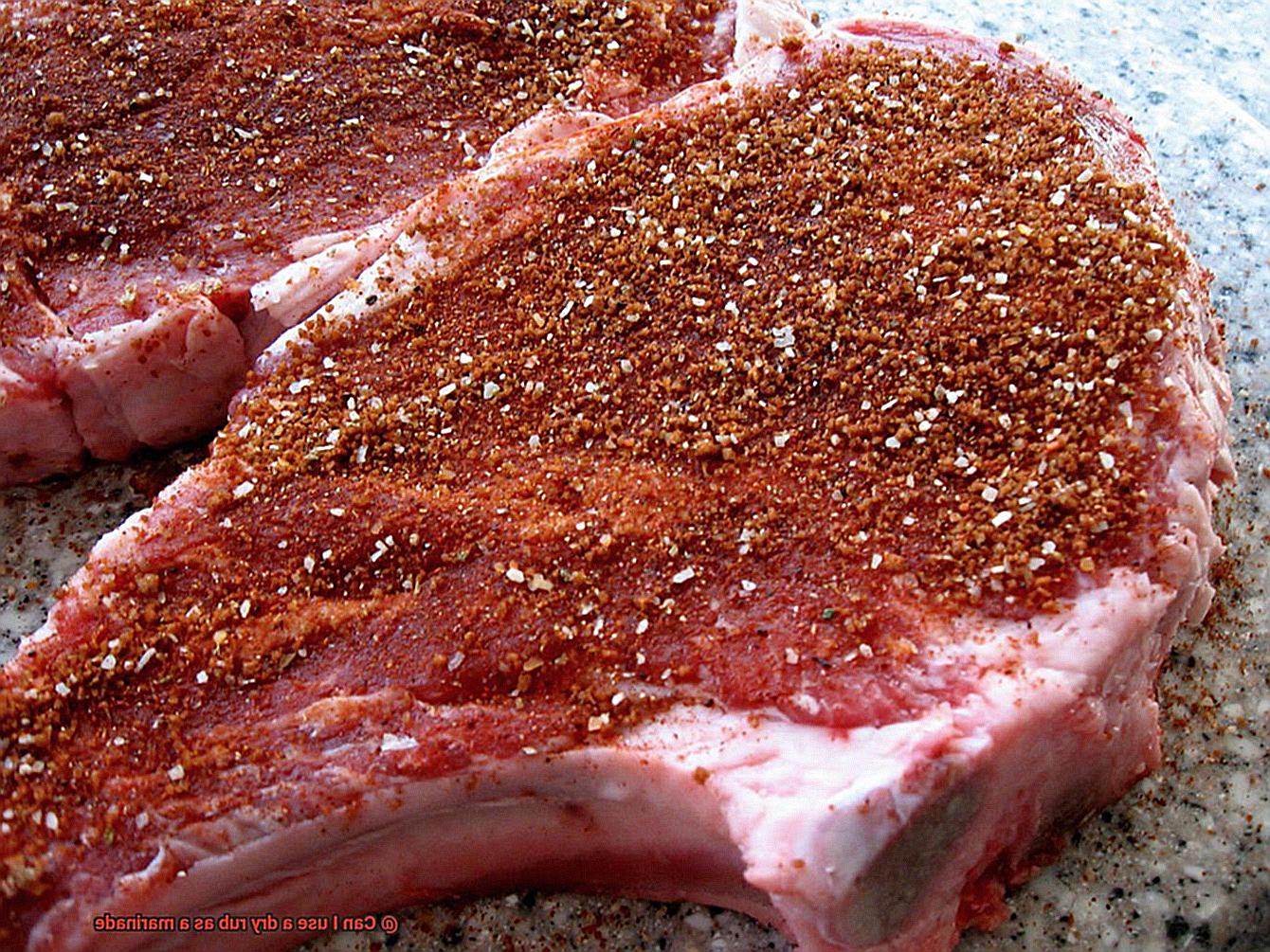
Apply Generously and Evenly
A dry rub should be applied liberally and evenly to the meat to ensure that the flavor penetrates deeply. Massage the rub into the meat to allow it to seep into any crevices or cuts. A generous coating will also create a flavorful crust and add texture to your dish.
Let it Rest
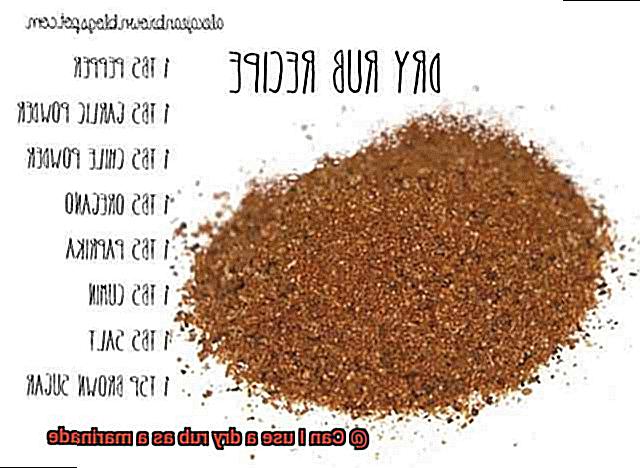
After applying the dry rub, let the meat rest for at least 30 minutes before grilling. This allows time for the flavors to develop and infuse into the meat. Leaving it longer can further enhance the taste, but avoid leaving it for too long as this can cause the meat to become mushy.
Use Moisture
Dry rubs consist of spices and herbs that can easily fall off during cooking. Adding a little moisture such as oil or vinegar can help the rub adhere better to the meat. This creates a paste-like consistency that sticks to the meat and prevents it from drying out during cooking.
Don’t Overcook
Unlike marinades, dry rubs do not contain acidic ingredients that tenderize meat. Therefore, it’s important not to overcook your meat as it can become tough and dry. Keep an eye on the internal temperature of your meat, and remove it from the grill as soon as it reaches your desired level of doneness.
Experiment with Flavors
Dry rubs offer endless opportunities for experimentation with different flavors and spices. Try mixing up a variety of herbs and spices such as cumin, chili powder, garlic powder, or smoked paprika for a unique flavor. You can also add sweetness to your dry rub by incorporating brown sugar or honey.
8Z1rInUG29E” >
Conclusion
In summary, using a dry rub as a marinade is possible but it’s important to understand the nuances of each technique. Dry rubs are great for adding quick flavor to the surface of meat, but they don’t penetrate it like marinades do. Marinades, on the other hand, are perfect for tenderizing meat and infusing it with deep flavors.
If you decide to use a dry rub as a substitute for a marinade, keep in mind that too much salt or leaving it on for too long can result in an overpowering flavor or an overly intense crust. However, there are many advantages to using a dry rub: it’s easy to use, versatile, and can create a crispy exterior on your meat. Additionally, dry rubs can be healthier than marinades since they typically rely on spices and herbs for flavor.
To get the most out of your dry rub, apply it generously and evenly to your meat before letting it rest before cooking. Moisture can help the rub adhere better and avoid overcooking your meat. Don’t be afraid to experiment with different flavors either.

